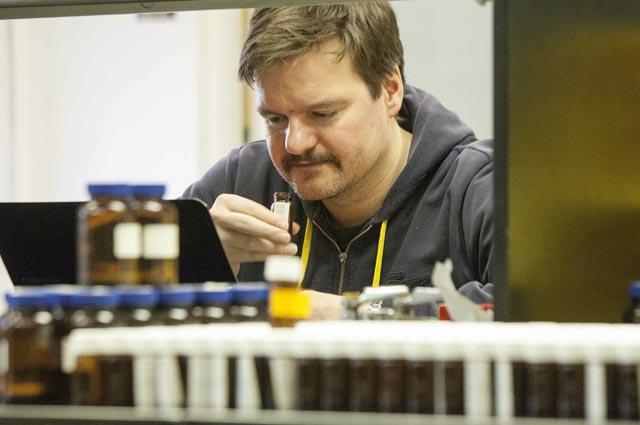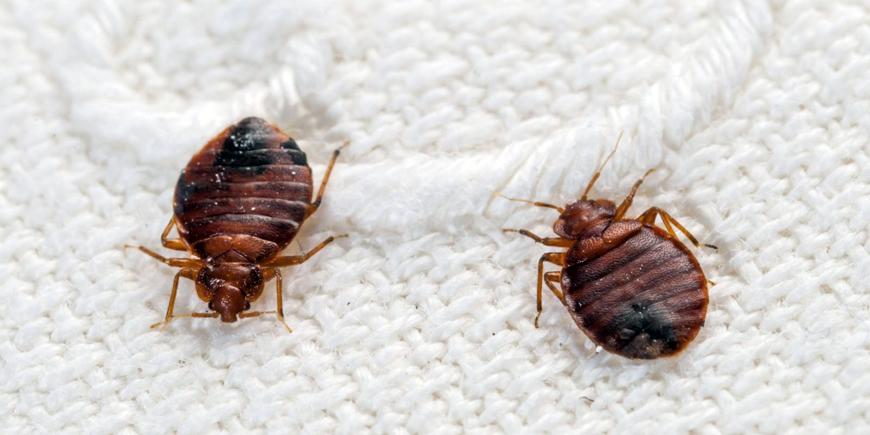You are here
Mosquito magnet? Blame your DNA
Apr 26,2015 - Last updated at Apr 26,2015
By Karen Kaplan
Los Angeles Times (TNS)
Are you a mosquito magnet? If so, your genes may be to blame.
New research shows that if mosquitoes are attracted to the scent of a particular person, they are likely to be attracted to her twin’s scent as well. On the flip side, if they are repelled by someone’s odour, they’re likely to find her twin repellent, too.
Scientists tested 37 sets of twins who were willing to place their hands in a Y-shaped glass tube. Groups of 20 mosquitoes were released into the tube and given 30 seconds to assess the scents inside. Then a gate was opened, allowing them to fly towards the hands they preferred and away from the hands they disliked. (Although the mosquitoes could smell the volunteers’ hands, they couldn’t actually reach them.)
After running versions of the experiment 40 times with each set of twins, they found that the overlap in mosquito preference was about twice as high for identical twins (who share virtually all their DNA) as it was for fraternal twins (who share only half). That allowed them to calculate that 62 per cent to 83 per cent of a person’s degree of mosquito attractiveness is determined by DNA, according to a study published Wednesday in the journal PLOS One.
To put that into perspective, other studies have found that genes are about 80 per cent responsible for a person’s height and 50 per cent to 80 per cent responsible for a person’s IQ.
Scientists have suspected for some time that those who find themselves playing the role of pincushion at barbecues and other outdoor gatherings have an unfortunate genetic inheritance.
They knew that biology played a role in either attracting or repelling mosquitoes. For instance, women who are pregnant are a much bigger draw than women who aren’t. They also know that people who are infected with the malaria parasite are more attractive to mosquitoes during the window when the infection can be spread.
Previous studies have shown that mosquitoes are drawn to people (or not) on the basis of their odour. Bacteria that live on skin play a role in producing body odour, but skin cells probably play a role too. If so, that might be controlled by genes.
So the researchers recruited 18 pairs of identical twins and 19 pairs of fraternal twins. All of them were women (so that the gender of the volunteers wouldn’t skew the trial results) and all of them were post-menopausal (so that changes in their menstrual cycle wouldn’t be a factor).
They also collected dozens of female Aedes aegypti mosquitoes, the species that spreads dengue fever. The mosquitoes were five to seven days old, and in their short lives all they had been able to eat was a glucose solution.
In some tests, the researchers compared the odour of one twin’s hand against clean air. In other tests, they tested twin-versus-twin. And in others, both ends of the Y-shaped tube were pumped with clean air.
The experimental results leave no doubt that some people are genetically programmed to be attractive to mosquitoes, and other lucky individuals have DNA that functions as a natural mosquito repellent. The researchers hope to use this knowledge to trick mosquitoes into thinking that everyone is in that second category.
“We could possibly develop a drug, a pill that you might take when you go on holiday that would cause your body to produce natural repellents and would minimise the need to actually put repellents on your skin,” said James Logan, a medical entomologist at the London School of Hygiene and Tropical Medicine and the study’s senior author.
The next step for Logan and his team is to figure out which genes are responsible for mosquito magnetism, he said in a video released by his university. Genes involved in the major histocompatibility complex are believed to be involved in body odour, so that’s one place to look, according to the study.
Once the genes are found, public health experts might be able to use that information to control mosquito-borne diseases, such as dengue and malaria, Logan said.
Related Articles
The human nose can distinguish at least one trillion different odours, millions more than previously estimated, US researchers said Thursday.
AMMAN — A strange odour that permeated parts of Aqaba is “non-hazardous”, Aqaba Governor Ghassan Kayed said on Sunday, attributing the sourc
PARIS — Bedbugs, the notorious bloodthirsty critters which tormented the residents of New York City some years ago, have become genetically

















